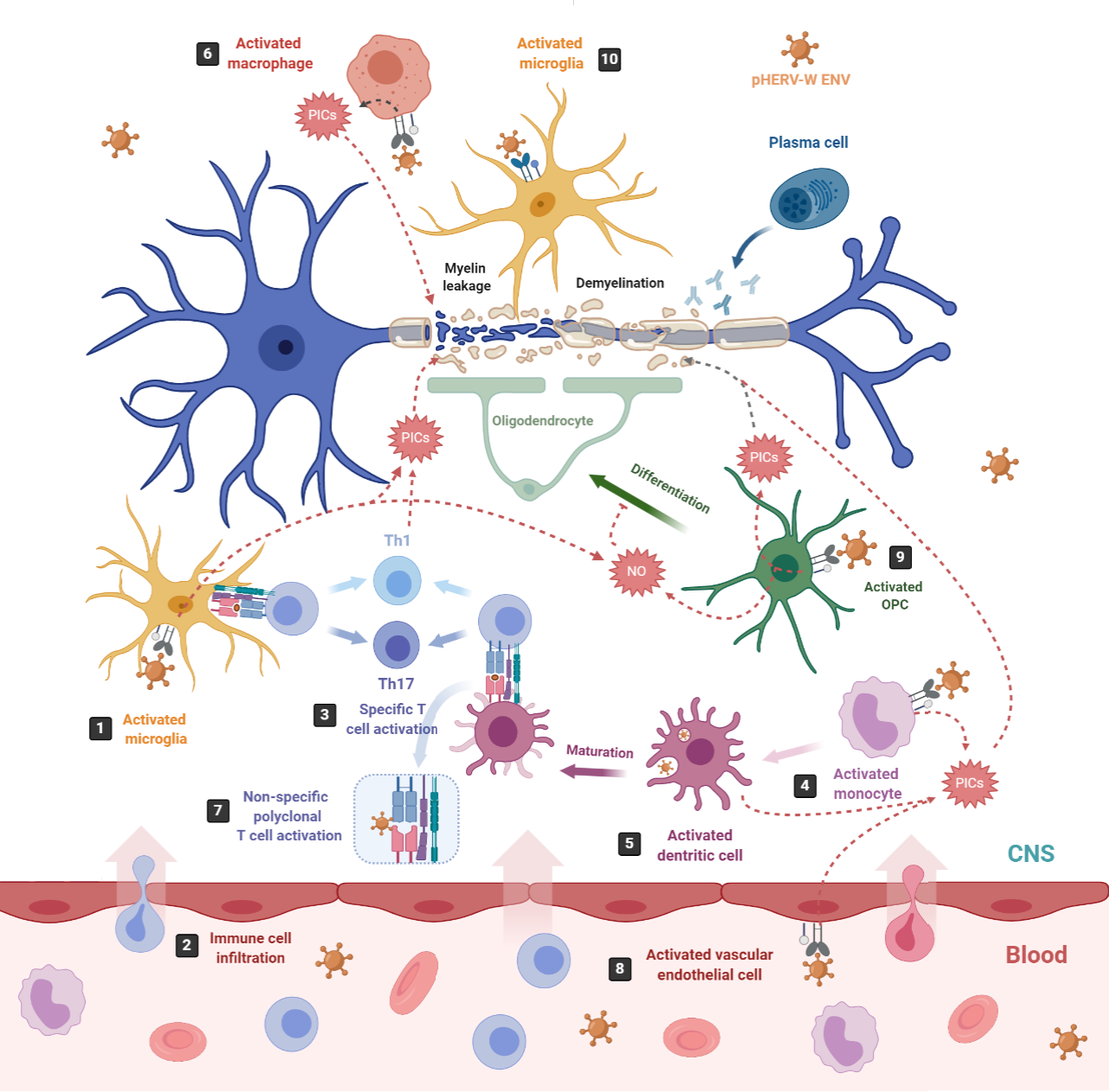Human endogenous retroviruses (HERVs) are ancient retroviral DNA sequences established into germline. They contain regulatory elements and encoded proteins few of which may provide benefits to hosts when co-opted as cellular genes. Their tight regulation is mainly achieved by epigenetic mechanisms which can be altered by environmental factors, e.g. viral infections, leading to HERV activation. Aberrant expression of HERVs associates with neurological disease, such as multiple sclerosis (MS) or amyotrophic lateral sclerosis (ALS), inflammatory processes and neurodegeneration. This review summarizes recent advances on the epigenetic mechanisms controlling HERV expression and the pathogenic effects triggered by HERV derepression. The article ends describing new promising therapies targeting HERV elements, one of which, temelimab, has completed phase II trials with encouraging results in treating MS. The information gathered here may turn helpful in the design of new strategies to unveil epigenetic failures behind HERV-triggered disease, opening new possibilities for druggable targets and/or for extending the use of temelimab to treat other associated diseases.

